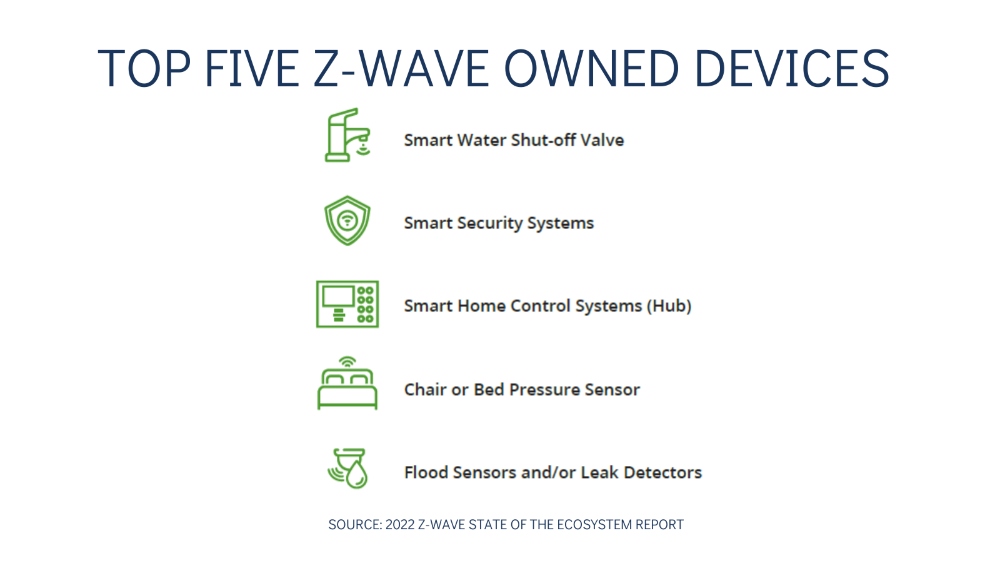The Z-Wave Alliance, the standards development organization dedicated to advancing the smart home and Z-Wave technology, has released its third-annual Z-Wave State of the Ecosystem Report. The newly available report – fielded in cooperation with Interpret – offers a mix of syndicated data to create a baseline of the overall smart home market landscape, as well as data collected from a custom quantitative survey of 1,500 U.S.- based smart home device owners. The report examines current and future smart home technology trends, and new opportunities with an emphasis on the role Z-Wave plays in the market.
“The 2022 Z-Wave State of Ecosystem Report is a portrait of how the Z-Wave protocol is used to answer serious challenges—and how Z-Wave’s maturity, reliability, and interoperability converts consumers and drives market adoption,” said Z-Wave Alliance executive director Mitch Klein. “We are the steward of the Z-Wave standard, and as a member run standards development organization establishing key benchmarks like those established in this report provide excellent insights our members can act upon. This data indicates we may be entering our most exciting chapter yet.”
There were several key insights Dealerscope gathered from the report, including:
– There is a healthy market eager to grow their personal smart home ecosystems; this desire was especially strong among respondents that already own a Z-Wave device.
– Smart security and home control systems owners exhibit a strong appetite to add -on devices. 97 percent of control system owners and 90 percent of smart security system owners have added devices.
– Those who already have a security system or control system exhibit identical purchase intentions when it comes to the devices they are interested in adding. Top rated devices included Wi-Fi networked cameras, smart door locks and smart video doorbells.
– DIY, or self-installation, has emerged as the dominant means of installation for a wide range of products, often purchased at retail or direct from the manufacturer. Devices more likely to be pro-installed are those attached to control systems or requiring more involved installation.
– On the professionally installed side of the market, two thirds of those with installed smart security and smart home control systems have had their installer add more devices.
In addition to the data analysis provided by the report, there are studies of how Z-Wave has improved the management and efficiency of hotels, apartment complexes and even a full-scale smart community.
















